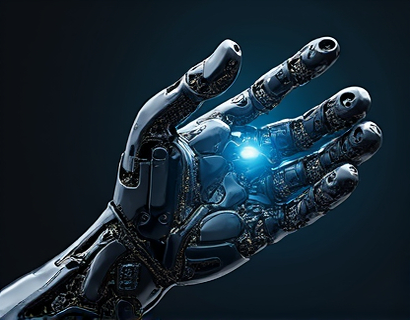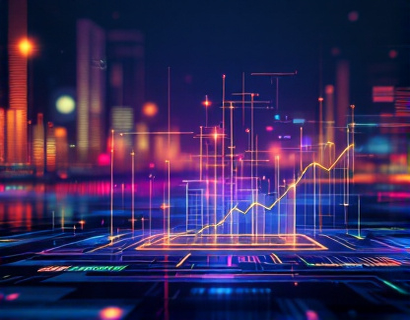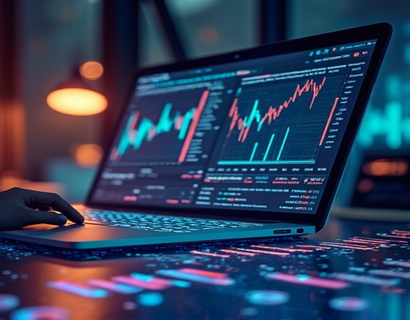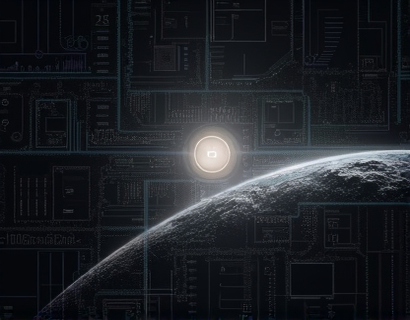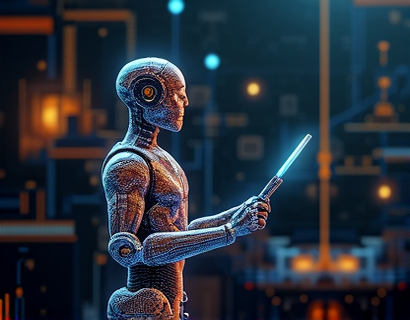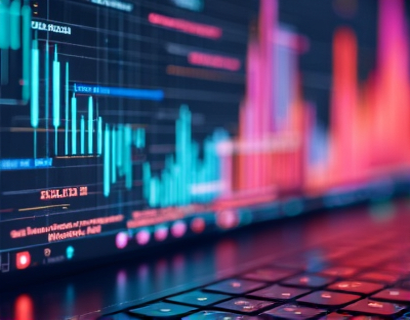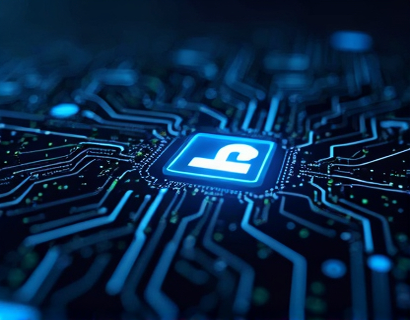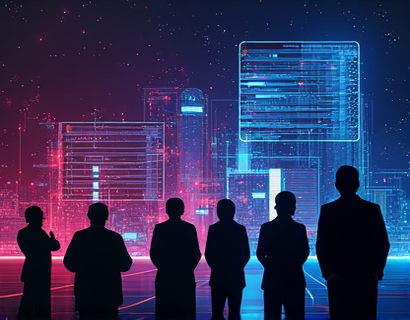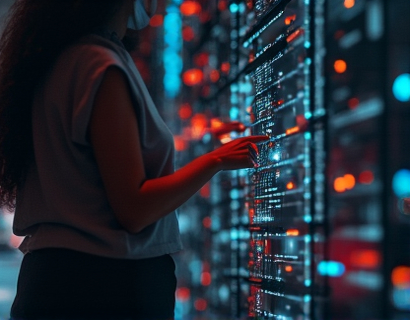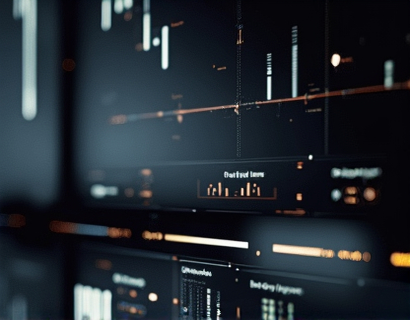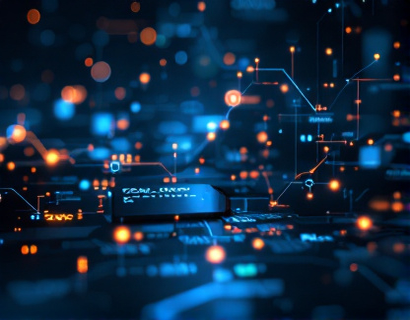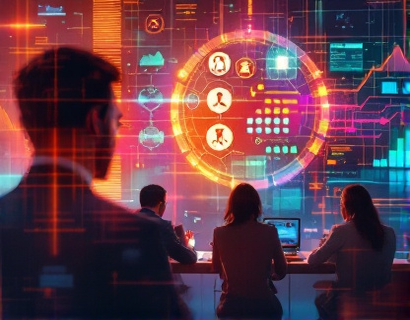Transforming Digital Experiences: The Synergy of Crypto and AI
The intersection of blockchain technology and artificial intelligence (AI) is ushering in a new era of digital transformation. This synergy is not just about combining two powerful technologies but about creating a seamless and enhanced digital experience that redefines how we interact online. For tech innovators and early adopters, understanding how to leverage this integration is crucial for staying ahead in the rapidly evolving tech landscape. This article serves as a comprehensive guide to harnessing the potential of blockchain and AI to drive substantial growth and engagement in the digital realm.
Understanding Blockchain and AI
Blockchain technology, at its core, is a decentralized ledger that ensures transparency, security, and immutability in transactions. It operates on a network of nodes, each maintaining a copy of the ledger, which makes it highly resistant to tampering and fraud. On the other hand, AI involves the simulation of human intelligence processes by machines, particularly computer systems. These processes include learning (the acquisition of information and rules for using it), reasoning (using rules to reach approximate or definite conclusions), and self-correction.
When combined, blockchain and AI can create a powerful ecosystem where data integrity is maintained, and intelligent decision-making is enhanced. The decentralized nature of blockchain ensures that AI systems have access to reliable and tamper-proof data, which is crucial for training and validating AI models. Conversely, AI can optimize blockchain operations, making them more efficient and scalable.
Enhancing Data Security and Privacy
One of the most significant benefits of integrating blockchain and AI is the enhancement of data security and privacy. Blockchain's inherent security features, such as cryptographic hashing and consensus mechanisms, provide a robust framework for protecting sensitive information. AI can further bolster this by detecting and mitigating potential security threats in real-time. For instance, machine learning algorithms can analyze patterns in transaction data to identify anomalies that may indicate a security breach.
Privacy is another critical aspect where blockchain and AI converge. Blockchain's pseudonymous nature allows users to transact without revealing their identity, while AI can implement advanced encryption techniques to protect user data. Zero-knowledge proofs, a cryptographic method, enable one party to prove to another that a statement is true without revealing any information beyond the truth of that statement. This ensures that sensitive information remains confidential while still being verifiable.
Optimizing Smart Contracts with AI
Smart contracts, self-executing contracts with the terms directly written into code, are a cornerstone of blockchain technology. However, their effectiveness can be limited by the rigidity of predefined rules. AI can transform smart contracts by introducing adaptability and intelligence. Machine learning algorithms can analyze historical data and predict outcomes, allowing smart contracts to make more informed and dynamic decisions.
For example, in supply chain management, AI can optimize smart contracts to automatically adjust terms based on real-time data such as inventory levels, demand forecasts, and transportation delays. This not only streamlines processes but also reduces the need for manual intervention, making the system more efficient and reliable.
Personalized User Experiences
The integration of blockchain and AI can significantly enhance user experiences by providing personalized and context-aware services. AI algorithms can analyze user behavior and preferences to deliver tailored content, recommendations, and services. Blockchain ensures that this data is securely stored and managed, giving users greater control over their personal information.
In the realm of digital marketing, this synergy can lead to more effective and ethical advertising. AI can create targeted ads based on user preferences and behavior, while blockchain ensures that user data is handled transparently and securely. This approach not only improves user satisfaction but also builds trust, which is essential for long-term engagement.
Decentralized Finance (DeFi) and AI
Decentralized Finance (DeFi) is a rapidly growing sector that leverages blockchain to create financial services without traditional intermediaries. AI can play a pivotal role in enhancing DeFi platforms by providing advanced risk management, fraud detection, and algorithmic trading. Machine learning models can analyze market trends and predict price movements, enabling more informed investment decisions.
Moreover, AI can optimize lending and borrowing processes in DeFi by assessing creditworthiness more accurately and dynamically adjusting interest rates based on real-time data. This not only improves the efficiency of financial transactions but also makes financial services more accessible to a broader audience.
Supply Chain Transparency and Efficiency
The supply chain industry stands to benefit immensely from the combination of blockchain and AI. Blockchain can provide a transparent and immutable record of every step in the supply chain, from production to delivery. AI can analyze this data to identify bottlenecks, optimize routes, and predict maintenance needs for equipment. This dual approach ensures greater efficiency, reduces costs, and enhances trust among all parties involved.
For instance, in the food industry, blockchain can track the origin and journey of products, ensuring food safety and authenticity. AI can monitor these records in real-time, alerting authorities and consumers to any potential issues. This level of transparency and accountability is crucial for building consumer trust and compliance with regulatory standards.
Healthcare Innovations
In the healthcare sector, the integration of blockchain and AI can revolutionize patient care and data management. Blockchain can secure patient records, ensuring they are tamper-proof and accessible only to authorized personnel. AI can analyze these records to provide personalized treatment plans, predict disease outbreaks, and optimize resource allocation.
Telemedicine platforms can benefit from this synergy by using AI to offer real-time diagnostics and recommendations, while blockchain ensures that patient data is securely transmitted and stored. This not only improves the quality of care but also enhances patient privacy and trust in digital health solutions.
Challenges and Considerations
While the potential of blockchain and AI is vast, there are several challenges and considerations that must be addressed. Scalability remains a significant issue for blockchain, as many networks struggle to handle high transaction volumes efficiently. AI models require substantial computational resources and data, which can be costly and energy-intensive. Ensuring interoperability between different blockchain platforms and AI systems is also crucial for seamless integration.
Moreover, the regulatory landscape for both blockchain and AI is still evolving. Compliance with data protection laws, such as GDPR, and financial regulations is essential to avoid legal pitfalls. Ethical considerations, particularly around data privacy and the potential for AI bias, must be carefully managed to build public trust and acceptance.
Roadmap for Adoption
For organizations looking to leverage the synergy of blockchain and AI, a strategic roadmap is essential. Here are key steps to consider:
- Assess Current Infrastructure: Evaluate existing systems to identify areas where blockchain and AI can add value. Focus on processes that are prone to fraud, inefficiency, or lack transparency.
- Define Objectives: Clearly define the goals of integrating these technologies. Whether it's enhancing security, improving user experiences, or optimizing operations, having clear objectives will guide the implementation process.
- Pilot Projects: Start with small-scale pilot projects to test the integration. This allows for identifying and addressing potential issues in a controlled environment before scaling up.
- Collaborate with Experts: Partner with blockchain and AI experts to ensure technical excellence. This collaboration can provide valuable insights and help navigate complex implementation challenges.
- Monitor and Adapt: Continuously monitor the performance of the integrated system and be prepared to make adjustments based on feedback and evolving requirements. The tech landscape is dynamic, and flexibility is key to long-term success.
By following this roadmap, organizations can effectively harness the power of blockchain and AI to transform their digital experiences and drive substantial growth and engagement.
Conclusion
The convergence of blockchain and AI represents a paradigm shift in how we approach digital interactions. By combining the security and transparency of blockchain with the intelligence and adaptability of AI, we can create a more secure, efficient, and user-centric digital ecosystem. For tech innovators and early adopters, embracing this synergy is not just an option but a necessity for staying competitive and relevant in the next generation of technology.




